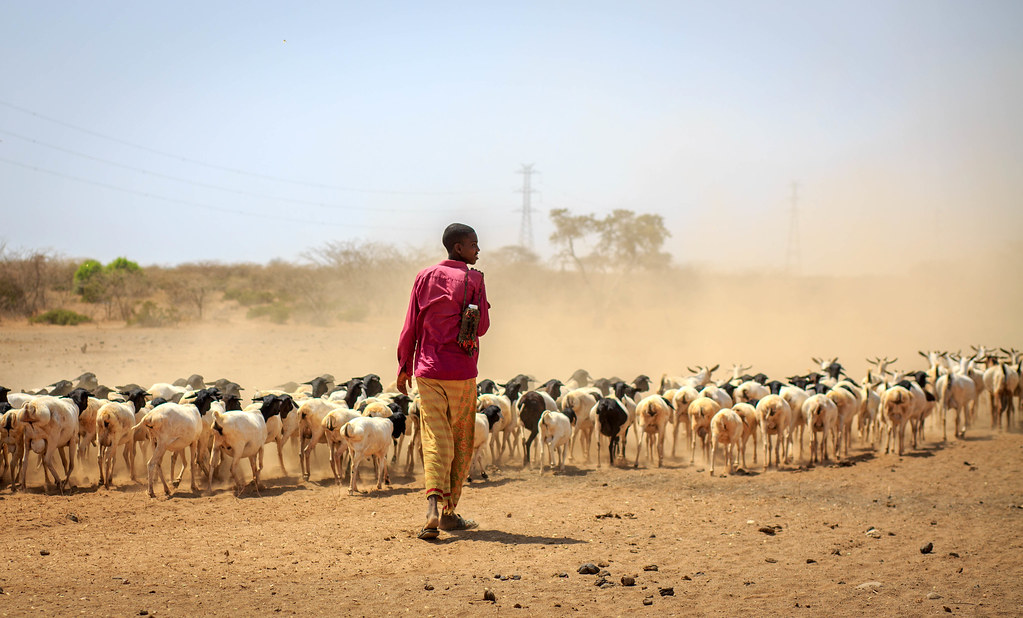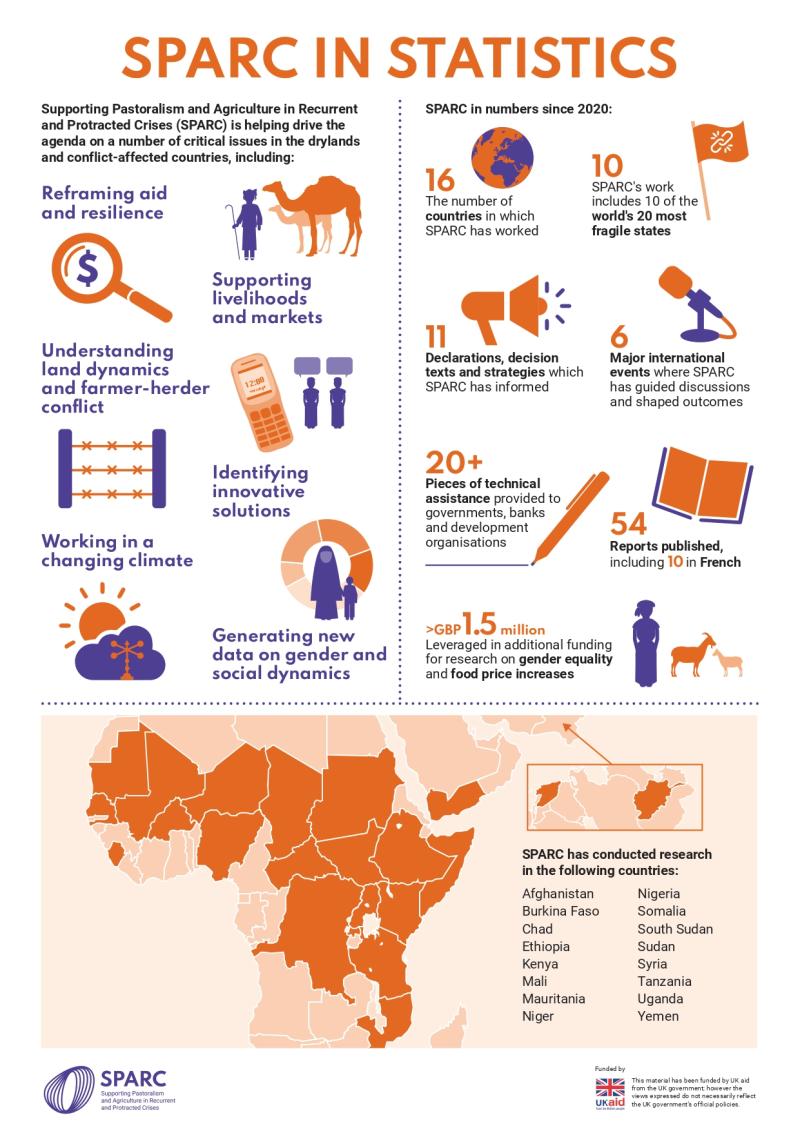Pastoralism and agriculture in conflicts and crises: a review of three years of SPARC research
This report, commissioned midway through SPARC’s six-year run, synthesises the programme's work in the period 2020 to mid-2023.

People living in the drylands are used to dealing with uncertainty. Far from being outdated or unproductive, pastoralism and farming in the drylands are highly adaptive, well suited to semi-arid to arid ecosystems, and form a critical part of regional food and economic security. However, the resilience of these people is being increasingly tested, and support remains fragmented, siloed, and often ill-suited to specific contexts.
Supporting Pastoralism and Agriculture in Recurrent and Protracted Crises (SPARC) was commissioned in 2020 to drive more meaningful and cost-effective support to pastoralists, agropastoralists and farmers living in the context of climate change, protracted crises and ongoing conflicts. It does this by generating policy-relevant and accessible evidence on the drylands, providing decisionmakers - governments, donors, non-governmental organisations, banks, investors and the private sector - with the tools and information they need to intervene more effectively.
This report summarises three years of SPARC's work. Chapter 1 reviews SPARC’s research so far into critical knowledge gaps and outlines how this research has been designed to generate change in perceptions, policy-making and aid programming. Chapter 2 looks at the impacts of SPARC’s work so far: how knowledge is being used to support different actors to engage more effectively in the drylands, and how it is being embedded into wider conversations in the humanitarian, climate and development sectors. Finally, Chapter 3 considers the role and importance of SPARC’s research in the years ahead, in shaping longer-term programmes, policies and investments that are sensitive to the unique needs and issues affecting the drylands.



